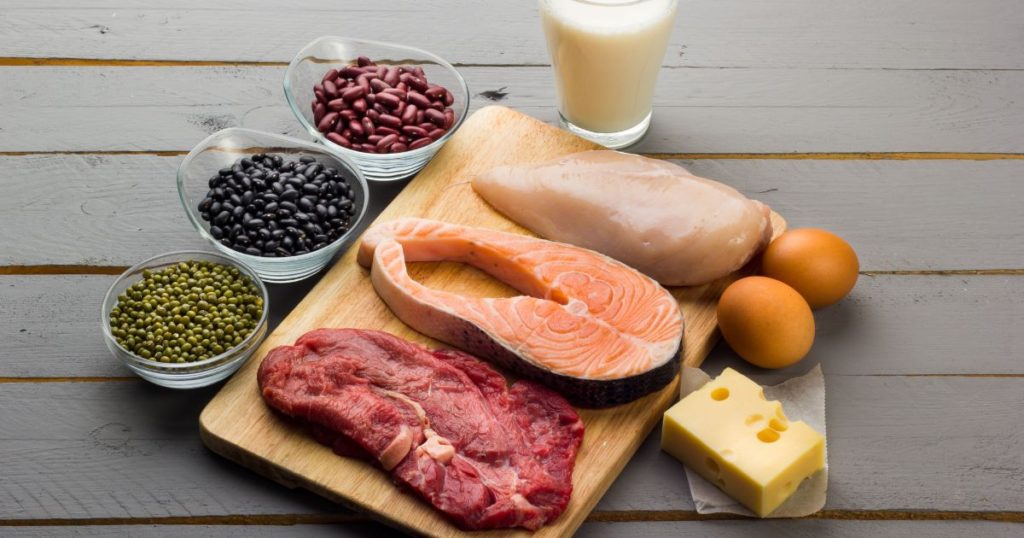In part one we discovered how important protein amino acids are to the structure, function and regulation of all the body’s cells, tissues, and organs and how important it is to get the right bioactive amino acids.
http://charleneday.com/choosing-the-right-protein-part-1/
Since dietary sources of protein include both animals and plants, let’s examine some of the differences.
Animal Sources
- Meat is a second grade protein. It is a secondary source of protein that has been converted and altered. The amino acids that the animal consumes have to be converted into animal matter and that makes it a lower grade protein.
- The average meat today is not a complete protein any more, especially after the processing, additives, storage time in freezer, and cooking the life out of it.
- Meat contains protein but that’s not all, there is usually more fat and water content. For example a T-bone steak is 19% protein, 43% fat, and 36% water.
- There are also pesticide residues on what the animal eats. These residues accumulate in animal fat. Then the animal protein is converted into fat in the body and stored as fat. Not only are there pesticide residues stored in our fat cells, there are also fattening hormones, antibiotics, hormones, and tranquilizers from the processing of meat. This toxic load leads to higher incidence of cancer and heart disease.
- Some of the processing methods also can lead to disease-causing bacteria and parasites.
- Over-consuming animal protein puts a strain on our bodies, particularly our liver, which has a low tolerance for processing uric acid, a by-product of digesting animal protein.
- Animal protein brings more nitrogen into the body. To get rid of this toxic substance, the body must excrete it in urine. This is very hard on the kidneys (can increase probability of kidney stones) and you lose valuable minerals in the process – i.e. calcium, potassium, magnesium. This can lead to osteoporosis.
- Animal protein increases calcium excretion in urine. It has been thought that this occurs to maintain the pH imbalance from the oxidation of sulfur amino acids. This may lead to bone loss and osteoporosis.
- Arachidonic acid is a pro-inflammatory fatty acid found in varying concentrations in all meats.
- We need to drink more water when we are meat eaters because animal protein is dehydrating.
- Research indicates that a high animal protein diet is carcinogenic, there is an increase in urea excretion, which suggests that amino acid oxidation is increased.
- Protein cannot be utilized or metabolized without adequate B3, B6, potassium, phosphorus, and carbohydrates.
- When you heat animal protein to temperature of 110 degrees, over 50% of the bioactivity is lost and you can destroy up to 50% of some of the amino acids.
- Fish is a cocktail of chemicals, pesticides, oil, and poisonous metals such as cadmium, lead, mercury, bacteria, viruses, and DDT. It is not a very safe protein choice these days.
Plant Sources – foods such as soy, quinoa, other whole grains, legumes, as well as nuts and seeds
- Easier on kidneys than animal protein, more fibre so feel fuller longer
- Less wear and tear on your digestive system, easily digested, absorbed, assimilated, and eliminated
- Have more digestive-enhancing enzymes, antioxidant vitamins and protein integrity.
- Leads to lower body mass indexes, lower blood pressure, dietary cholesterol and unhealthy saturated fat, and reduces blood lipids.
- Good for your heart, helps lower cholesterol by about 3%, lowers risk of heart disease by 30%
- Lectins have been found to possess anti-cancer properties in both test tube and human case studies
- Lowers rates of colon, lung, breast and prostate cancer, heart attacks and stroke, and kidney disease and osteoporosis.
- Dr. Richard Rivlin, noted cancer specialist at the Memorial Sloan-Kettring Cancer Centre in New York, encourages everyone to consumer water washed soy because of the isoflavones that discourage or stop the growth of cancer cells.
- Isoflavones are also antioxidants. They protect cells from oxygen damage.
- The isoflavones look like estrogens so they can attach to the estrogen receptor sites in the body and block the cancer-enhancing estrogen (xenoestrogens) from exerting its effects. Examples of xenoestrogens are PCBs, dioxin, detergents, spermicides, plastics and petroleum by-products. Isoflavones block a special enzyme that the cancer cells need for their activity. They prevent progression of cancer. As a result isoflavones inhibit the growth of a variety of cancer cells but don’t affect normal cells.
- Found to increase phagocytes and lymphocytes (white blood cells – immune system).
- Study at Tufts University shows vegetable protein prevents removal of calcium from the bones and promotes formation of bone collagen so helps retain bone mass.
- Decreases hot flashes, mood swings, night sweats.
- Phytochemicals like saponins demonstrate a potent sedative activity and lower cholesterol by preventing its absorption from the G.I. tract.
The choice is yours but I think you will see that plant sources of protein are easier on your body.
To your good health,
Charlene Day



